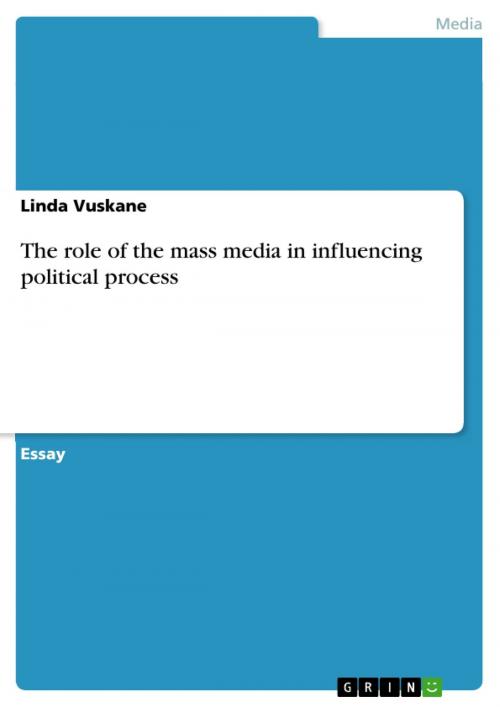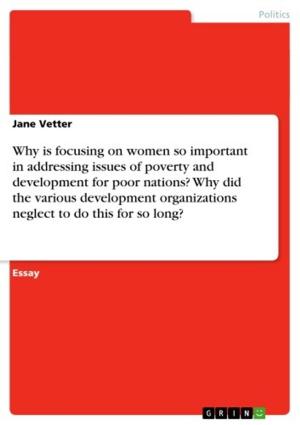| Author: | Linda Vuskane | ISBN: | 9783640762040 |
| Publisher: | GRIN Publishing | Publication: | November 26, 2010 |
| Imprint: | GRIN Publishing | Language: | English |
| Author: | Linda Vuskane |
| ISBN: | 9783640762040 |
| Publisher: | GRIN Publishing |
| Publication: | November 26, 2010 |
| Imprint: | GRIN Publishing |
| Language: | English |
Essay from the year 2009 in the subject Communications - Mass Media, grade: 74%, Liverpool John Moores University, language: English, abstract: The following report will investigate the role of mass media in politics and will aim to prove the hypothesis that mass media reinforces existing stereotypes and prejudices in society while also shortly examining arguments against the hypothesis. Firstly the issues around gender stereotyping will be discussed, followed by problems arising from ethnical stereotyping, focusing particularly on issues with regards to Islam as well as Muslims. The paper concludes that although there are some positive cases, the strong arguments supporting the hypothesis proves that the mass media does reinforce as well as construct social stereotypes around the images that are produced, and by doing so they are capable of shaping the individual's attitudes and beliefs. The mass media, in fact, can be seen as a product of Britain's culture that is biased like any other culture, with assumptions, stereotypes and prejudices.
Essay from the year 2009 in the subject Communications - Mass Media, grade: 74%, Liverpool John Moores University, language: English, abstract: The following report will investigate the role of mass media in politics and will aim to prove the hypothesis that mass media reinforces existing stereotypes and prejudices in society while also shortly examining arguments against the hypothesis. Firstly the issues around gender stereotyping will be discussed, followed by problems arising from ethnical stereotyping, focusing particularly on issues with regards to Islam as well as Muslims. The paper concludes that although there are some positive cases, the strong arguments supporting the hypothesis proves that the mass media does reinforce as well as construct social stereotypes around the images that are produced, and by doing so they are capable of shaping the individual's attitudes and beliefs. The mass media, in fact, can be seen as a product of Britain's culture that is biased like any other culture, with assumptions, stereotypes and prejudices.















